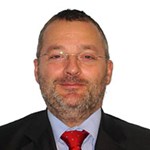Pilonidal sinus surgery at Benenden Hospital
Pilonidal sinuses are more common in young adults, and you’re more likely to experience one if you’re male, since men generally have more hair in the buttock area. Friction or pressure on the skin may also create a pilonidal sinus as can sitting down for long periods of time, being overweight or having an existing injury to the skin.
If a pilonidal sinus keeps becoming infected, your GP may recommend that you have pilonidal sinus surgery to remove the sinus and to prevent further infections.
We understand that surgery can be a daunting prospect. Our expert team is dedicated to delivering your treatment with care and discretion and providing the best standard of aftercare.








